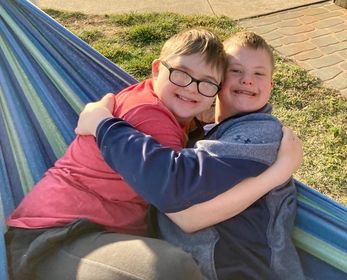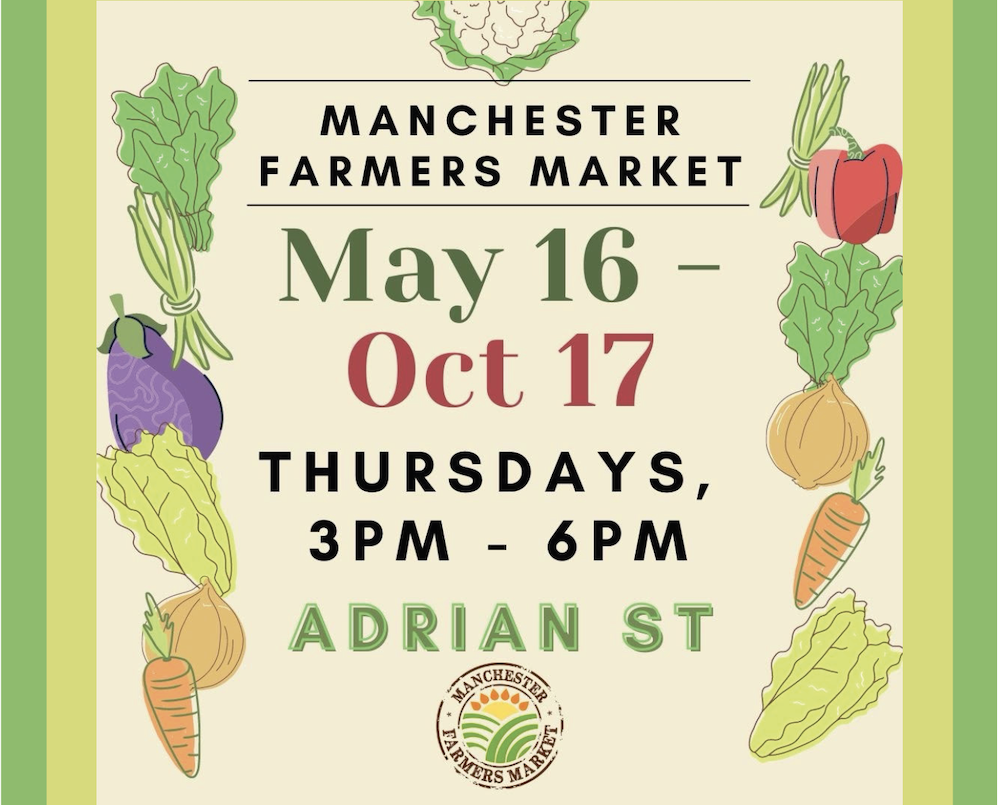Stories of Wil: Beyond Words

Wil with his friend, Manny.
submitted by Christie Taylor
Wil is a 14-year-old boy with Down syndrome. He is the little brother, by 20 months, to twin sisters, Katherine and Elizabeth. Wil’s mom, Christie, knew very little about Down syndrome when Wil was diagnosed shortly after his birth. It didn’t take long for Christie to realize how enriching life with Down syndrome is. Embracing this newfound life, Christie was compelled to share her experiences with Wil. Christie’s desire, in sharing these stories, is to promote an awareness, understanding, and appreciation of the amazing capabilities of individuals with Down syndrome.
“Give me a hug.” Those were Laura’s first words when she came over for a visit.
A slanderous word had been directed at Wil that he thankfully didn’t hear (when I learned about it, this careless use of a word hurt me more than him). Even as Wil grows in maturity and in self-advocacy, he will always have a level of vulnerability that is indefensible, which is why it is key that we as parents and friends rise up to advocate for our loved ones with Down syndrome. And that is exactly what Wil’s friends did; they spoke up and their words righted a wrong.
Words have the power to educate, to elevate, and to tear down. As powerful as words are, words can also fall short; notably in experiences when the day-to-day minutia of our lives vary enough from the norm to be easily misunderstood, or carelessly undervalued. One favorite example is from a school psychologist who was told in his early days of training that individuals with Down syndrome can be stubborn. “Well, ok, stubborn is stubborn,” he thought. After his experience working with individuals with Down syndrome he said, “I learned there was a whole new level of stubborn!”
Laura’s hug articulated a level of understanding words never could. Laura’s son, Manny, who is almost 16 years old, also has Down syndrome.
A podcaster who has a daughter with severe disabilities recently said that when raising a child with disabilities, you need friends who are doing the same. That these friends innately understand the specifics of your life because they live it too. She added that if at all possible, these friends would be your friends anyway.
On St. Patrick’s Day, Laura and I were at a coffee house. We chose an outside table as it was unseasonably warm. Laura’s attention turned over my shoulder. I followed her gaze and saw a group of four young men walking in our direction. All of the men were dressed for the holiday; including the group leader with them. The men stopped by our table, and flipped the sheets of paper they held, conferred with each other, then looked down at flower pots, and up at signs.
“Are you on a scavenger hunt?” I asked the young man closest to me. He had a slight speech delay and was not the least bit shy. He showed me his sheets of paper, and told me what they found already, and what they were now looking for. He was clearly enjoying this activity with his friends. Laura and I exchanged a warmhearted smile. An entire conversation passed between us without a single word.
Like most mothers, Laura and I want our children to be happy. Laura’s two other children will soon be leaving home for college and careers of their own. I’ll be in the same position just over two years from now. Many of our friends are either experiencing, or soon to be experiencing, an empty nest. Our nests will look different; Laura and I are on the cusp of navigating what that will look like. Having a friend who understands the entirety of this upcoming new adventure, without explanation, lifts me beyond words.
Though Laura and I connected through our boys, somehow I know we’d be friends anyway. There are some things you just know.






You must be logged in to post a comment Login